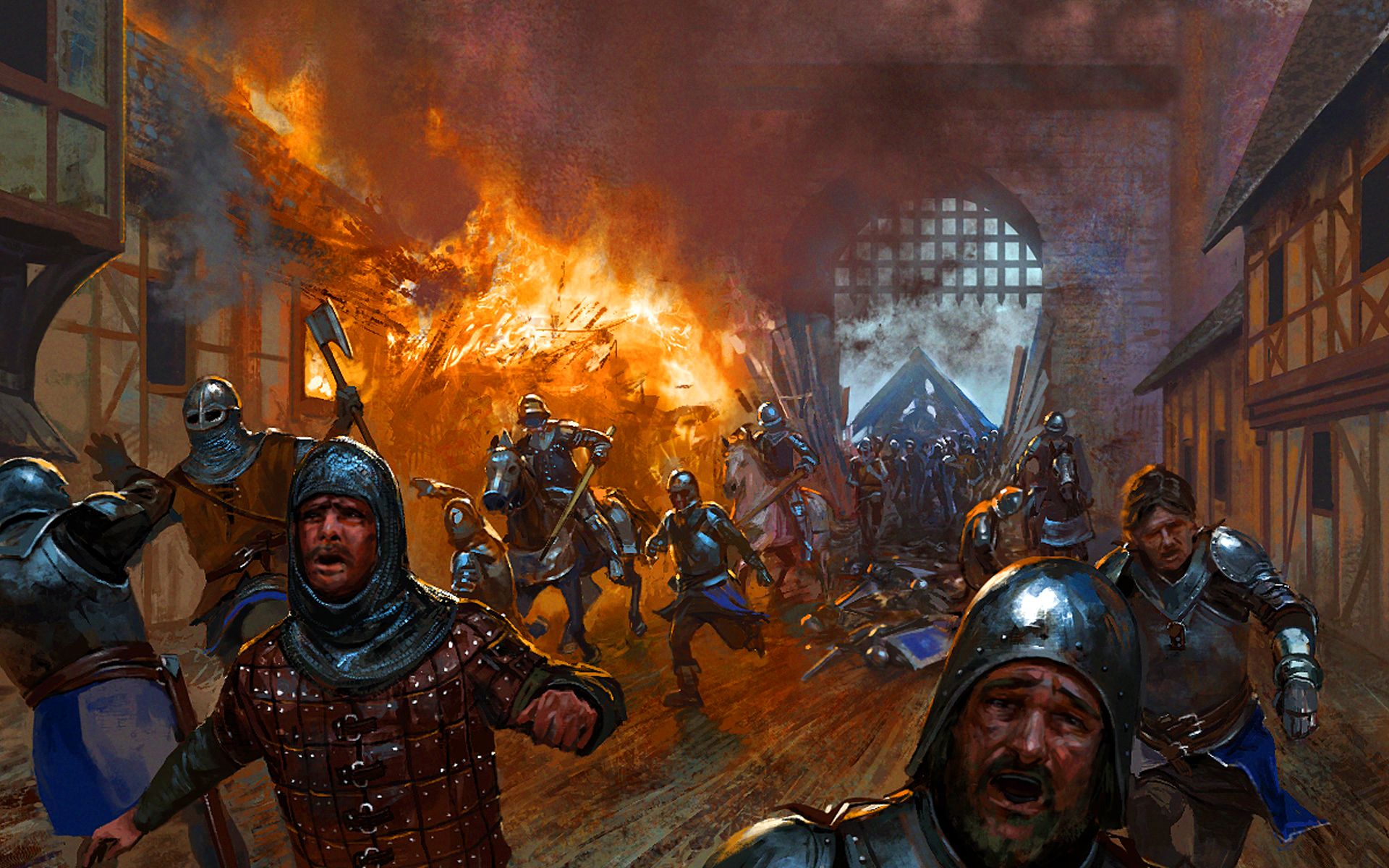Morale
Morale describes the confidence, enthusiasm and discipline of a person or group at a particular time, depending on recent events that occur in combat. Morale does not affect player characters, but it does affect both allies and enemies. The effects of battle on morale depends upon the amount of training the combatants have and their willingness to stand their ground. Morale is improved by circumstances such as leadership, belief and the consequences of failing to defend a position. Morale is measured as a number between 2 and 12, with "2" indicating fanaticism and "12' indicating certain cowardice. To succeed against morale, the number must be met or exceeded on 2d6. Otherwise, morale is considered to have failed and the combatant must either give ground or flee.
A morale check is made whenever an NPC, usually a hireling or follower, has witnessed or experienced some troubling circumstance that encourages them to withdraw in haste. These are called Day-to-Day Checks. Alternately, life-threatening situations, such as combat, may cause the NPC to flee in fear rather than hold their ground. These are called Combat Checks.
Standard Morale
- Main Article: standard morale
When engaging in combat, most Non-levelled non-player characters (NPCs) are considered to have a standard morale equal to 9. This describes both hirelings and followers at the start of their association with the players, whether or not those NPCs have received combat training, unless these are levelled persons, in which case their morale would be 8. Children younger than 14 have a standard morale of 10.
Among fighting clans, standard morale will be 7 due to their continued association with one another. Common leaders will have a morale of 6; sub-chiefs will have a morale of 3-5 and chieftains will have a morale of 2-5. Quality morales of this type occur because base morale can be adjusted by circumstances.
Day-to-Day Checks
When an NPC associated with the player characters witnesses, or hears from a credible witness, that something has happened that compromises the NPC's values, their continued association with the party is put in jeopardy. Examples include the flagrant use of lies and deception, reckless disregard for the safety of others, appearing to abandon others, consistent disregard or irresponsibility towards the NPC's stated role, failure to provide pay, a lack of remorse towards those who are hurt or mistreated, gratuitous theft and the performance of capital crimes. So long as any NPC associated with the party has reason to believe the party is capable of such actions, they must make a morale check immediately.
Depending on the NPC, a morale failure at this point will have varied outcomes. If the NPC is far weaker than the party and has no official duties, then probably the NPC will attempt to slip away unseen. An official would confront the party and perhaps threaten them with sanctions, depending on the official's responsibility. A friend of the party might demand an explanation; and failing to receive a good one, might end the friendship. Anyone strong enough to confront the party would certainly demand reasonable amends for the indecency perpetrated. And if enough NPCs became aware of the party's doings, they might spread rumours that would make it difficult for the party to hire NPCs or make friends in the region, so that a morale check would have to be made before anyone agreed to work with or for the party.
A successful morale check would not necessarily mean that the NPC would condone the party's actions. The DM should make a decision with regards to each NPC. Either the NPC is the sort who is content to wallow with the party, or endure them, until some worse thing is perpetrated, in which case another morale check would not be necessary unless the party sank lower in their behaviour, or the NPC has chosen to "wait and see," in which case the next incident should be rolled with a -1 penalty on the morale dice.
For example. Jarod, a party follower with a morale of 9, sees Kendra and Leopold threatening and physically abusing a shop keeper for information. He rolls a "9" on 2d6, which succeeds against his morale, so he does not choose to abandon the party. Because he is only a muleskinner, he decides to say nothing; perhaps, because of the circumstances, he is willing to let the matter go. But the DM decides that a doubt has been stirred in his mind. Therefore, when three days later, the party breaks into a private house in order to have a place to say, Jarod feels compelled to roll a morale check again. Again he rolls a 9, but this time, because the die has a penalty of -1, it counts as an 8. This is below Jarod's morale, so he packs up his things and quietly leaves the party in the middle of the night, wanting nothing else to do with them.
